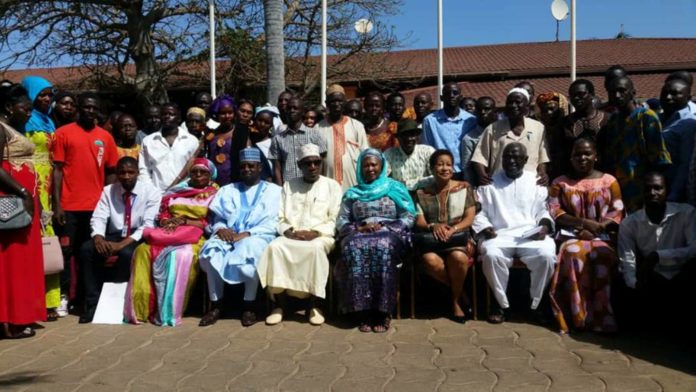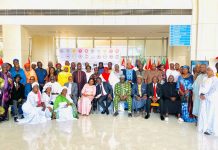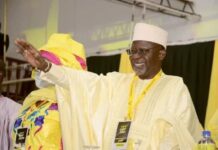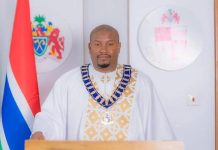By Fatoumatta K Jallow
The West Africa Network for Peacebuilding (WANEP) and the Inter-Party Committee (IPC), jointly organized a three day training workshop on capacity building for members of the IPC and the IPC’s Regional Sensitization Teams. The event which was held at a local Hotel on Tuesday June 26th 2018, was funded by the International Republican Institute (IRI).
Speaking at the opening ceremony, the Vice President Mrs Fatoumatta Jallow Tambajang, said it is a fact that the new Gambia is inundated with various levels of interventions aimed at consolidating the democratic process, strengthening institutions and accelerating economic development and growth; that these efforts however, may be threatened if a proper and inclusive process of reconciliation and conflict preventions and mitigation, is not put in place.
“Dialogue and cooperation between political party supporters, is equally vital in maintaining a peaceful society. The recently concluded electoral cycle of 2016-2018, was marred by inciting languages including hate speech along ethnic and tribal lines, as well as discrimination against women, by political actors,” she explained.
She highlighted reported incidents of violence during nominations, campaign and in some instances, in the post-election period; that there exists a campaign code of ethics by the IEC for aspirants, but little is done to enforce the code to ensure that perpetrators are brought to book.
According to the VP, the institutional and operationalization of the IPC MOU, will therefore serve as a mechanism for receiving and redressing disputes and differences between and amongst political parties; that the training is timely because it contributes to the rebuilding process of the Gambia and creates a platform for sharing divergent views, whilst maintaining a common national interest of peace and unity.
VP Tambajang assured that Government will support the IPC and engage the leadership of political parties to commit to the IPC-MOU and to appeal to the IPC to enforce the IPC-MOU to ensure sanctions are effected on any party or candidate who violates its provisions.
She said the training will devise strategies and recommendations on how to mitigate political tensions and accelerate the discussion on political tolerance amongst parties and communities in the Gambia.
Also speaking at the opening of the workshop, was the US ambassador to the Gambia, Patircia Alsup. The US Ambassador said the focus of the next three days will be on resolving conflicts between political parties through ‘‘constructive engagement and conflict prevention”, is an important topic for the country at this time; that as the Gambia makes its transition from an authoritarian regime to a full- fledged democracy, the skills and knowledge that participants will gain during this seminar, will assist to ensure a strong and stable democratic society for the country.
The Chairman of the IEC, Alieu Momar Njie, said political parties have a great role to play in averting unfortunate incidents in the future; that elections are meant to breed peace and development and not to sow discord, hatred and conflict; that political parties are expected to bring sanity to the political environment of a country.
“I believe the most viable forum in the Gambia for conflict resolution and prevention, is the inter-party committee (IPC). This is a standing committee constituted by the political parties themselves, to discuss matters of interest,” he concluded.
Anna Jones, National Network Coordinator for WANEP, the Gambia, said the theme for the workshop came about as a result of the need to formalize the inter-party committee; that political parties in May 6th 2017, signed an MOU that seeks to govern inter-party relations in the country; that the MOU is an instrument to promote political pluralism and tolerance and facilitate a level ground for multi-party democracy in the Gambia.



















